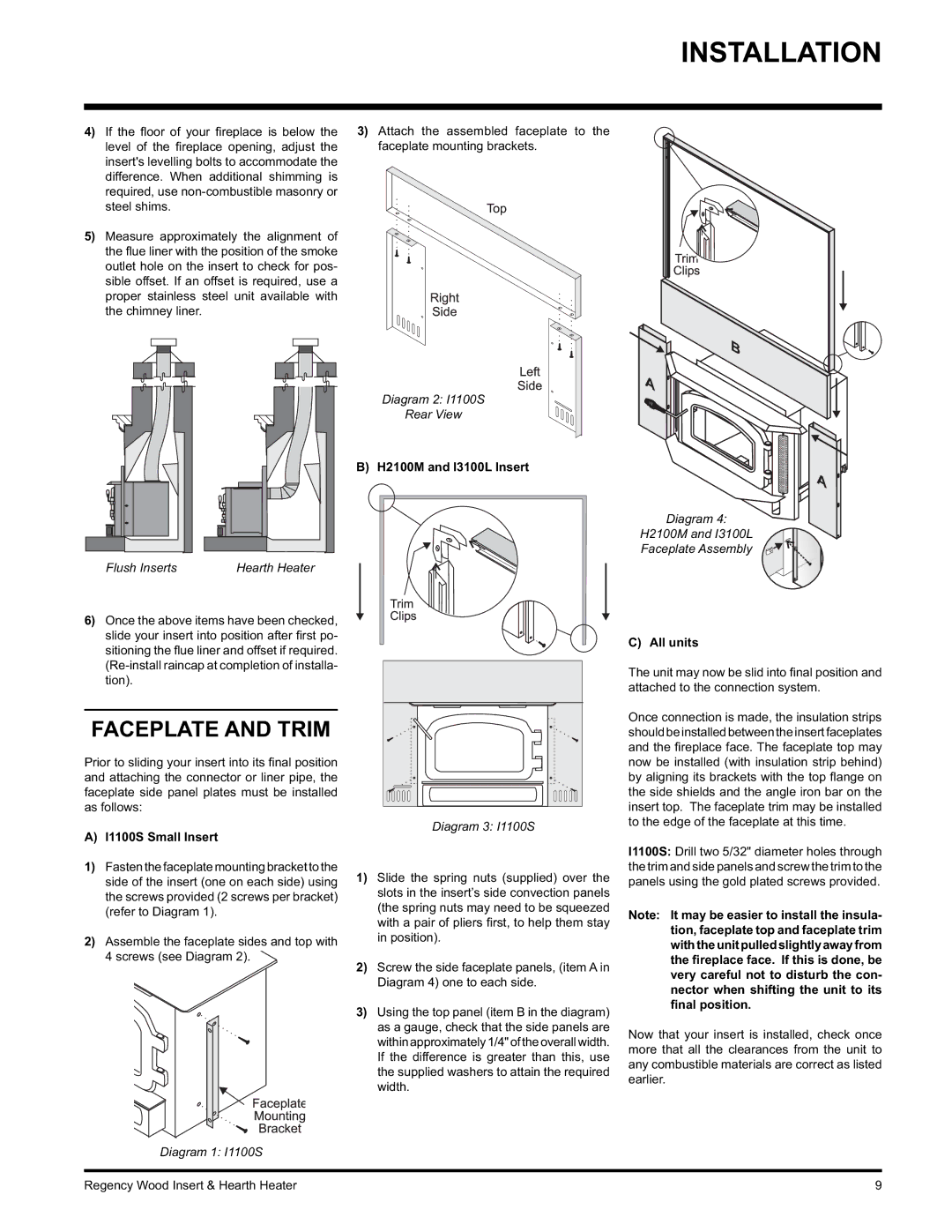H2100, I1100S, I3100L specifications
The Regency H2100 and I3100L are two innovative and efficient heating solutions that cater to the evolving needs of modern homes. Known for their quality craftsmanship and advanced technology, these products have become favorable choices among homeowners seeking both aesthetics and functionality.The Regency H2100 is a gas fireplace insert designed specifically to be installed within an existing fireplace. It features a sleek and contemporary design that enhances the ambiance of any room while providing effective heating. One of the main highlights of the H2100 model is its high efficiency rating, often exceeding 70%. This efficiency translates to reduced energy costs and a minimal environmental footprint. Equipped with a powerful heating capacity, the H2100 can effectively warm spaces up to 1,500 square feet, ensuring comfort during the coldest months.
Key technologies integrated into the H2100 include a direct vent system that allows for safe and efficient exhaust of combustion gases, promoting clean indoor air quality. Additionally, the unit features adjustable flame settings and an easy-to-use remote control, allowing for customized heating options to meet individual preferences. The H2100 also includes a variety of aesthetic options, such as different media choices, decorative surrounds, and glass doors, making it suitable for diverse interior designs.
On the other hand, the Regency I3100L is a wood-burning insert designed for homeowners who appreciate traditional heating methods. This model boasts a large firebox that can accommodate larger logs, providing extended burn times and minimal need for refueling. With an impressive efficiency rating, the I3100L minimizes wood consumption while maximizing heat output.
One of the standout characteristics of the I3100L is its large viewing glass, offering an unobstructed view of the fire, creating an inviting atmosphere. The insert features secondary combustion technology, which ensures that smoke and emissions are significantly reduced, promoting environmental friendliness. With its classic cast iron construction, durability is another crucial feature, ensuring that the insert will withstand the test of time while providing consistent warmth.
In conclusion, both the Regency H2100 and I3100L present unique heating solutions tailored to different preferences and lifestyles. With their advanced features, energy efficiency, and customizable designs, these models stand out in the market, offering homeowners the perfect blend of comfort, style, and sustainability in their heating solutions. Whether one prefers the convenience of gas or the charm of wood-burning, Regency has positioned itself as a leader in innovative heating technology.

